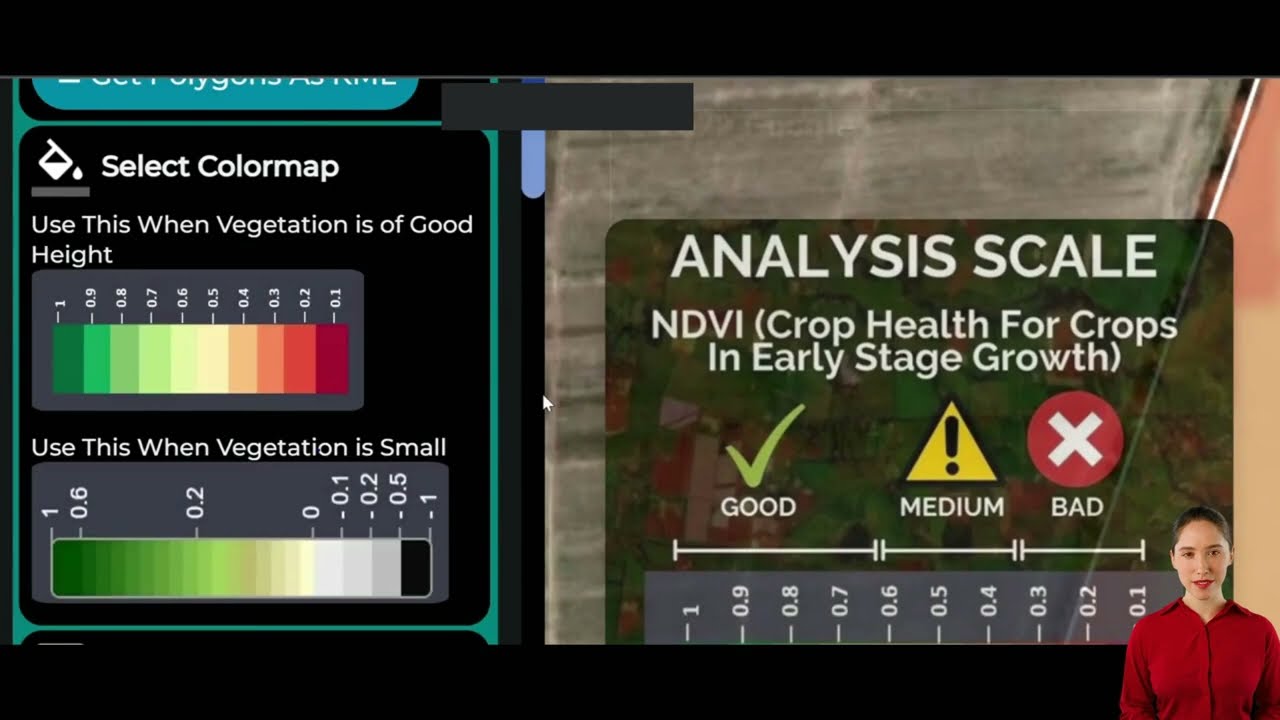Here’s a comprehensive 3500+ word blog post on the Farm Bill 2023, incorporating all the requested elements:
Farm Bill 2023: Shaping America’s Agricultural Research and Climate Resilient Farming Future
“The 2023 Farm Bill prioritizes sustainable agriculture practices and research funding, impacting thousands of agricultural professionals and certified advisers.”
As we delve into the intricacies of the Farm Bill 2023, we at Farmonaut recognize the profound implications this legislation holds for the future of American agriculture. Our mission to make precision agriculture accessible aligns closely with the bill’s emphasis on innovation and sustainability. Let’s explore how this landmark legislation is set to transform the agricultural landscape.
Understanding the Farm Bill 2023
The Farm Bill 2023 stands as a pivotal piece of legislation that will shape the trajectory of American agriculture for years to come. At its core, this bill places a strong emphasis on sustainable agriculture practices and bolstering agricultural research funding. These priorities reflect a growing recognition of the challenges facing our food systems and the urgent need for innovative solutions.
As providers of cutting-edge agtech solutions, we at Farmonaut are particularly attuned to the bill’s focus on precision agriculture technologies. The emphasis on data-driven farming aligns perfectly with our satellite-based crop monitoring and AI advisory systems, highlighting the increasing role of technology in modern agriculture.
Key Priorities of the Farm Bill 2023
The Farm Bill 2023 outlines several critical areas of focus that will guide agricultural policy and funding for the coming years:
- Sustainable Agriculture Practices: Promoting methods that enhance environmental stewardship while maintaining productivity.
- Agricultural Research Funding: Increasing support for scientific studies to drive innovation in farming techniques and technologies.
- Climate-Resilient Farming: Developing strategies to help farmers adapt to and mitigate the effects of climate change.
- Soil Health Management: Emphasizing practices that improve soil quality and long-term sustainability.
- Agricultural Data Management: Enhancing the collection, analysis, and application of farm data to inform decision-making.
These priorities reflect a holistic approach to addressing the complex challenges facing American agriculture. By focusing on these areas, the Farm Bill aims to create a more resilient, productive, and sustainable agricultural sector.
The Role of Agricultural Societies and Certified Advisers
Leading agricultural societies, representing thousands of professionals and certified advisers, have played a crucial role in shaping the Farm Bill’s priorities. These organizations bring together experts from various fields, including agronomy, soil science, and crop production, to advocate for policies that support the needs of farmers and the agricultural industry as a whole.
Certified advisers, in particular, serve as a vital link between research institutions and farmers on the ground. Their expertise in translating scientific findings into practical recommendations is invaluable in implementing the innovative practices promoted by the Farm Bill.

Addressing Global Challenges Through Innovation
“The upcoming Farm Bill aims to address food security and climate-resilient farming for over 900 million acres of U.S. farmland.”
The Farm Bill 2023 comes at a time when global challenges are pushing U.S. agricultural systems to their limits. Climate change, population growth, and resource scarcity are just a few of the issues that require innovative solutions. The bill’s emphasis on research and development is crucial in finding ways to increase food production while minimizing environmental impact.
At Farmonaut, we understand the importance of innovation in addressing these challenges. Our satellite-based farm management solutions and AI-driven advisory systems are designed to help farmers make data-informed decisions that optimize resource use and increase productivity. The Farm Bill’s support for such technologies is a testament to their growing importance in modern agriculture.
Research and Innovation: The Cornerstones of Agricultural Progress
One of the most significant aspects of the Farm Bill 2023 is its robust support for agricultural research. This commitment to scientific inquiry is essential for developing new crop varieties, improving soil health management techniques, and creating more efficient farming systems.
Key research areas highlighted in the bill include:
- Crop genetics and breeding for resilience
- Precision agriculture technologies
- Soil microbiome studies
- Water conservation techniques
- Integrated pest management strategies
By investing in these areas, the Farm Bill aims to equip American farmers with the tools and knowledge they need to face future challenges head-on.
Climate Research Coordination: A United Front Against Environmental Challenges
The Farm Bill 2023 recognizes that climate change poses a significant threat to agricultural productivity. To address this, it calls for improved coordination of climate research efforts across various agencies and institutions. This collaborative approach aims to:
- Streamline research efforts and avoid duplication
- Facilitate the sharing of data and findings
- Accelerate the development of climate-resilient farming practices
- Ensure that research outcomes are quickly translated into practical applications for farmers
As providers of satellite-based crop monitoring services, we at Farmonaut are excited about the potential for this coordinated approach to enhance our understanding of climate impacts on agriculture and develop more effective mitigation strategies.
Enhanced Agricultural Data Management: Powering Precision Farming
In the era of big data, effective agricultural data management is crucial for optimizing farm operations and informing policy decisions. The Farm Bill 2023 emphasizes the need for improved data collection, analysis, and sharing systems within the agricultural sector.
This focus on data management aligns perfectly with Farmonaut’s mission. Our platform provides farmers with real-time satellite imagery and AI-driven insights, enabling them to make data-informed decisions about crop management, resource allocation, and more. The Farm Bill’s support for such technologies underscores their importance in shaping the future of agriculture.

Fostering Equitable Outcomes in Agriculture
A key aspect of the Farm Bill 2023 is its commitment to fostering equitable outcomes across the agricultural sector. This includes initiatives aimed at:
- Supporting historically underserved farmers and ranchers
- Promoting diversity in agricultural research and extension programs
- Ensuring fair access to USDA programs and services
- Addressing disparities in land access and ownership
These efforts are crucial for creating a more inclusive and resilient agricultural system that benefits all Americans, regardless of their background or resources.
Utilizing On-Farm Networks for Real-World Research
The Farm Bill 2023 recognizes the value of on-farm networks in bridging the gap between research and practice. These networks allow for real-world testing of new farming techniques and technologies, providing valuable data and insights that can inform both policy and practice.
At Farmonaut, we understand the importance of on-farm validation. Our satellite-based monitoring systems are designed to work in conjunction with on-the-ground observations, providing a comprehensive view of farm performance and enabling farmers to make informed decisions based on both data and experience.
The Impact on Precision Agriculture Technologies
As an agtech solutions provider, Farmonaut is particularly interested in the Farm Bill’s implications for precision agriculture technologies. The bill’s emphasis on innovation and data-driven farming aligns closely with our mission to make precision agriculture accessible to farmers worldwide.
The support for precision agriculture in the Farm Bill is expected to drive advancements in:
- Remote sensing technologies
- AI-driven crop management systems
- Variable rate application of inputs
- Automated farm machinery
- Blockchain-based traceability solutions
These technologies have the potential to revolutionize farming practices, improving efficiency, reducing environmental impact, and enhancing crop yields.
Stakeholder Engagement: A Call to Action
The success of the Farm Bill 2023 depends on active engagement from all stakeholders in the agricultural community. Farmers, researchers, agribusinesses, and policymakers all have a role to play in shaping the implementation of the bill’s initiatives.
We encourage our users and partners to:
- Stay informed about the bill’s provisions and their potential impacts
- Participate in public comment periods and stakeholder meetings
- Engage with local agricultural extension offices and research institutions
- Explore how new technologies and practices can be integrated into their operations
By actively participating in the process, stakeholders can help ensure that the Farm Bill’s initiatives are implemented effectively and deliver maximum benefit to the agricultural community.
The Role of Agtech in Implementing Farm Bill Initiatives
As the Farm Bill 2023 places a strong emphasis on innovation and data-driven agriculture, agtech companies like Farmonaut are poised to play a crucial role in its implementation. Our satellite-based monitoring systems and AI-driven advisory tools align perfectly with the bill’s goals of promoting precision agriculture and enhancing farm productivity.
Here’s how agtech solutions can contribute to the Farm Bill’s key priorities:
- Climate-Resilient Farming: Satellite imagery and weather data analysis can help farmers adapt to changing climate conditions.
- Soil Health Management: Remote sensing technologies can provide insights into soil moisture and nutrient levels, informing better management practices.
- Agricultural Data Management: Platforms like Farmonaut’s can centralize and analyze farm data, making it easier for farmers to make informed decisions.
- On-Farm Networks: Agtech solutions can facilitate data sharing and collaboration among farmers, researchers, and advisors.
By leveraging these technologies, farmers can more effectively implement the sustainable and innovative practices promoted by the Farm Bill.
Farm Bill 2023: A Catalyst for Agricultural Transformation
The Farm Bill 2023 represents a significant step forward in addressing the complex challenges facing American agriculture. By prioritizing research, innovation, and sustainability, the bill sets the stage for a more resilient and productive agricultural sector.
Key takeaways from the Farm Bill include:
- A strong emphasis on sustainable agriculture practices
- Increased funding for agricultural research and innovation
- Support for climate-resilient farming techniques
- Focus on soil health management and conservation
- Promotion of precision agriculture technologies
- Commitment to fostering equitable outcomes in agriculture
As we move forward, it’s clear that the successful implementation of the Farm Bill will require collaboration between farmers, researchers, policymakers, and agtech providers. At Farmonaut, we’re committed to supporting this effort by continuing to develop innovative solutions that help farmers navigate the challenges and opportunities presented by this landmark legislation.
Farm Bill 2023 Priorities and Impacts
| Priority Area | Proposed Initiatives | Potential Impacts on Agriculture |
|---|---|---|
| Agricultural Research Funding | Increased budget allocation for research institutions, Grants for innovative farming studies | Accelerated development of new crop varieties, Enhanced pest management techniques, Improved farm productivity |
| Climate-Resilient Farming | Support for drought-resistant crop research, Funding for climate adaptation strategies | Increased farm resilience to extreme weather events, Reduced crop losses due to climate change |
| Soil Health Management | Incentives for cover cropping and no-till farming, Research on soil microbiome | Improved soil fertility and structure, Increased carbon sequestration, Enhanced water retention |
| Data Management | Development of centralized agricultural data platforms, Support for precision agriculture technologies | More informed decision-making by farmers, Optimized resource use, Increased farm efficiency |
| On-Farm Networks | Funding for collaborative research networks, Support for farmer-led research initiatives | Faster adoption of innovative practices, Improved knowledge sharing among farmers |
Conclusion: Embracing the Future of Agriculture
The Farm Bill 2023 marks a pivotal moment in the evolution of American agriculture. By prioritizing research, innovation, and sustainability, it paves the way for a more resilient and productive farming future. As we at Farmonaut continue to develop our satellite-based farm management solutions, we’re excited to play a part in this transformation.
We encourage all stakeholders in the agricultural community to engage with the Farm Bill’s initiatives, explore new technologies, and contribute to the ongoing dialogue about the future of farming. Together, we can build an agricultural system that is not only more productive and sustainable but also more equitable and resilient in the face of global challenges.
For those interested in leveraging cutting-edge agtech solutions to implement Farm Bill initiatives, we invite you to explore Farmonaut’s offerings:
For developers interested in integrating our satellite and weather data into their own systems, check out our API and API Developer Docs.
Frequently Asked Questions
- Q: How does the Farm Bill 2023 address climate change?
A: The bill emphasizes climate-resilient farming practices, funds research on drought-resistant crops, and supports initiatives to reduce agriculture’s carbon footprint. - Q: What role does precision agriculture play in the Farm Bill?
A: Precision agriculture is a key focus, with support for technologies that enable data-driven farming decisions, resource optimization, and improved crop management. - Q: How does the Farm Bill support soil health?
A: The bill includes incentives for practices like cover cropping and no-till farming, as well as funding for research on soil microbiomes and conservation techniques. - Q: What opportunities does the Farm Bill create for agricultural research?
A: It increases funding for research institutions, provides grants for innovative farming studies, and supports on-farm research networks. - Q: How does the Farm Bill aim to foster equity in agriculture?
A: The bill includes initiatives to support historically underserved farmers, promote diversity in research programs, and ensure fair access to USDA services.




















